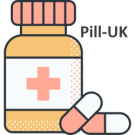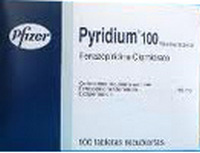Do you suffer from a burning sensation when you urinate and the urge to urinate drives you to the toilet every 20 minutes? Then you need to read about Pyridium, an incredibly popular product among many British, which will relieve you of the pain, inflammation and symptoms associated with urinary tract diseases such as cystitis (inflammation of the bladder) and urethritis (inflammation of the urethra).
In this material we will look at what Pyridium is, how it affects the body, who should use it and who it is contraindicated for. We recommend that you buy Pyridium from this online pharmacy, because in addition to the best prices you will get fast delivery and the possibility to order the medicine without a prescription.
What Is Pyridium
Pyridium is a painkiller that affects the lower urinary tract (bladder and urethra). It is important to know that it relieves the symptoms of a urinary tract infection, but does not treat the infection itself. The active substance is phenazopyridine, which reduces inflammation of the bladder mucosa and also has an anaesthetic effect on the urinary tract, reducing the pain and burning sensation when urinating.
Indications For Use
This medicine is intended to provide symptomatic relief of pain, burning sensation, increased urge to urinate and increased urgency to urinate. These symptoms may be caused by infection, trauma, surgery, catheterisation, or other conditions that irritate the bladder.
Contraindications For Use
Like all medicines, Pyridium has some contraindications for use. These include hypersensitivity to the active ingredient or any other ingredient in the product, renal insufficiency, pregnancy and lactation.
Side effects
The drug may cause some side effects, such as nausea, vomiting, headache, dizziness and drowsiness. It may also cause allergic reactions in some patients. It is important to remember that pyridium may stain the urine red or orange, which is a normal reaction to the drug.
It is advisable to consult a doctor and read the instructions for use before taking the medicine.
Directions for use and dosage
The tablets should be taken orally after a meal with plenty of water. The dosage and duration of treatment depend on the type and severity of the disease as well as the individual circumstances of the patient. Only a doctor can prescribe an individual dose.


